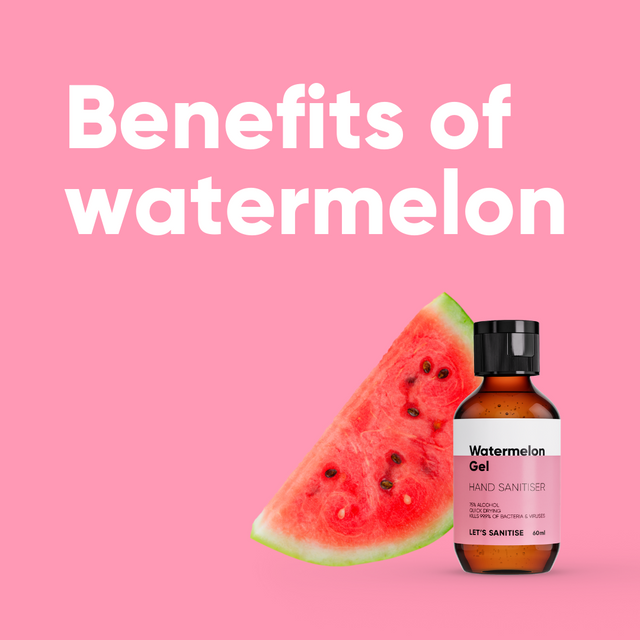Benefits of watermelon
Watermelon is a sweet and thirst quenching summer snack which provides hydration due to its very high water content, essential nutrients, including vitamins, minerals, and antioxidants.
There are five common types of watermelon: seeded, seedless, mini, yellow and orange.
Watermelon is around 90% water which makes it useful for staying hydrated in the summer. It contains antioxidants that can help remove molecules known as free radicals from the body. The body produces free radicals during natural processes such as metabolism. If too many free radicals stay in the body, oxidative stress can occur. This can result in cell damage and may lead to a range of diseases, such as cancer and heart disease.
Fun Fact!
A cup of watermelon provides around 15% of a persons daily vitamin C needs.
The benefits:
Asthma prevention
Experts believe that free radicals contribute to the development of asthma. Therefore, the presence of certain antioxidants in the lungs, including vitamin C, may reduce the risk of having asthma.
Blood pressure
A study found that watermelon extract reduced blood pressure in and around the ankles of middle-aged people with obesity.
Cancer
The national cancer institute notes that free radicals can play a role in the development of some types of cancer. The oxidative stress they cause can result in DNA cell damage, therefore, antioxidants in watermelon, such as vitamin C, may prevent cancer by combating free radicals.
Digestion
Watermelon provides the body with fibre and high water content which help to promote a healthy gut by preventing constipation and promoting regularity of bowel movements.
Hydration
Watermelon is around 90% water and also provides electrolytes such as potassium. This makes it an excellent snack during the hot summer weather. You can eat watermelon fresh, as a juice or frozen to receive its nutritional benefits.
Brain and nervous system
Choline is another antioxidant that is in watermelon which contributes to the following functions and activities.
- Muscle movement
- Learning and memory
- Maintaining the structure of cell membranes
- The transmission of nerve impulses
- Early brain development
Muscle soreness
Watermelon may reduce soreness and improve recovery time in athletes. Where a study found that those who consumed a watermelon drink reported less muscle soreness 23-73 hours after a marathon compared to those that consumed the placebo drink.
Skin
The vitamin C contained in watermelon helps the body to produce collagen. Collagen is essential for cell structure and immune function as well as promoting wound healing.
Vitamin c helps to promote healthy skin, including the risk of age-related damage.
Metabolic syndrome
Those with obesity or whom are overweight who consumed 2 cups of watermelon reported feeling less hungry and more satisfied for longer than those who ate cookies. After 4 weeks they also reported that they had:
- Higher levels of antioxidants in their blood
- Lower body weight and body mass index
- Lower systolic blood pressure
- Improved waist-to-hip ratio
Serving tips
Juice: dice watermelon and place in blender with a few ice cubes for a cold, refreshing drink, prefect for rehydrating in the sun.
Salad: Fancy a refreshing and light lunch? Add watermelon, mint and fresh mozzarella into a bed of spinach for a tasty salad. Drizzle with balsamic.
Smoothies:
- 3 cups diced and frozen watermelon cubes
- 1 cup frozen strawberries
- 1/2 cup vanilla greek yoghurt
- 1/2 tablespoon honey
- 1/2 cup water or milk of your choice
- (optional) 1/4 cup fresh mint
Roasted seeds: roast watermelon seeds in oven for 15-20 minutes to make a quick snack. 30 grams of seeds can provide around 17% of a persons daily protein needs. Great for vegans and vegetarians!
Our Watermelon collection is filled with Watermelon essential oils which has a refreshing and calming scent. When applied on skin, it has the ability to hydrate skin. It could also ease skin irritation. The calming scent is able to soothe anxiety and boost mood.
Shop the watermelon collection here.



